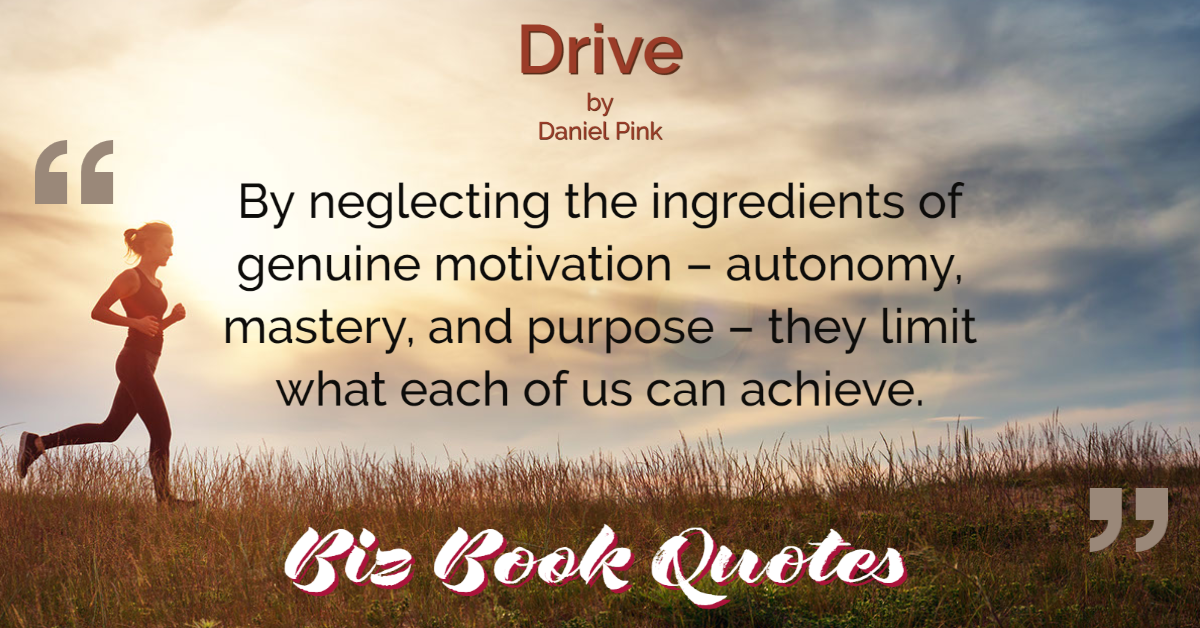 |
By neglecting the ingredients of genuine motivation – autonomy, mastery, and purpose – they limit what each of us can achieve.
|
49 |
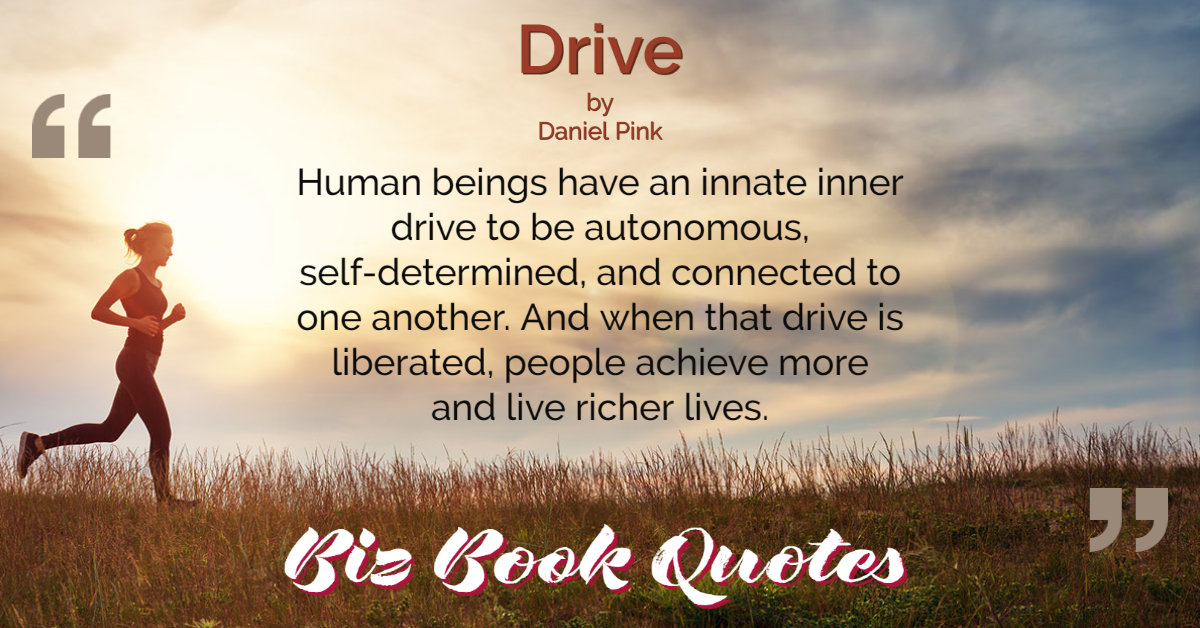 |
Human beings have an innate inner drive to be autonomous, self-determined, and connected to one another. And when that drive is liberated, people achieve more and live richer lives.
|
73 |
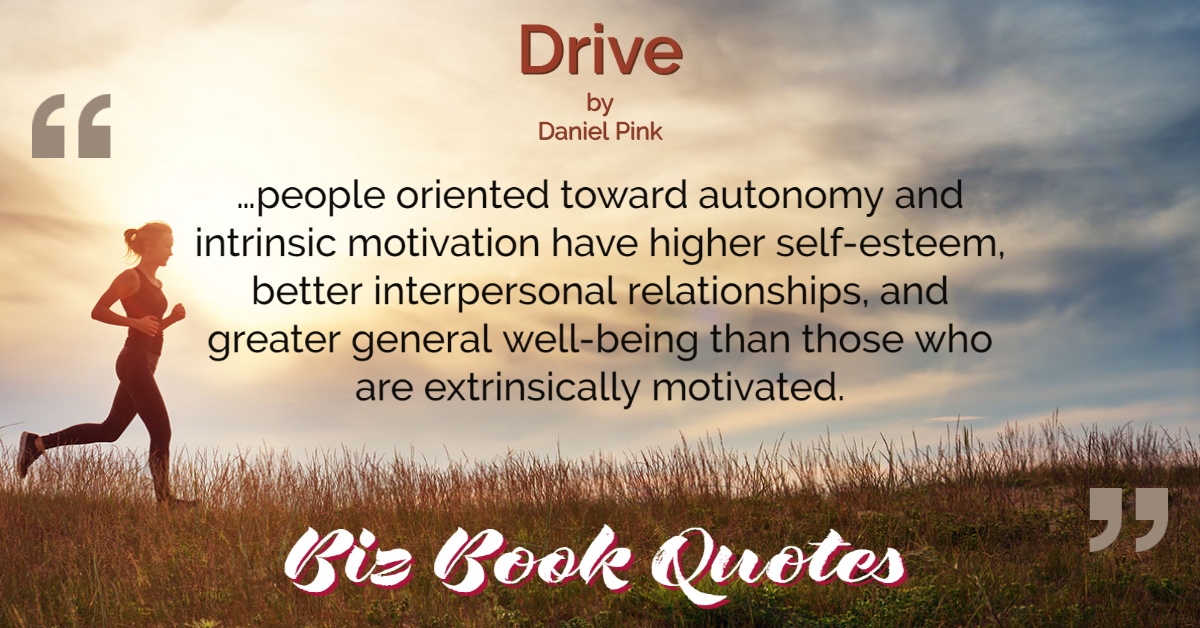 |
…people oriented toward autonomy and intrinsic motivation have higher self-esteem, better interpersonal relationships, and greater general well-being than those who are extrinsically motivated.
|
80 |
 |
…partners, like all of us, need to direct their own lives.
|
88 |
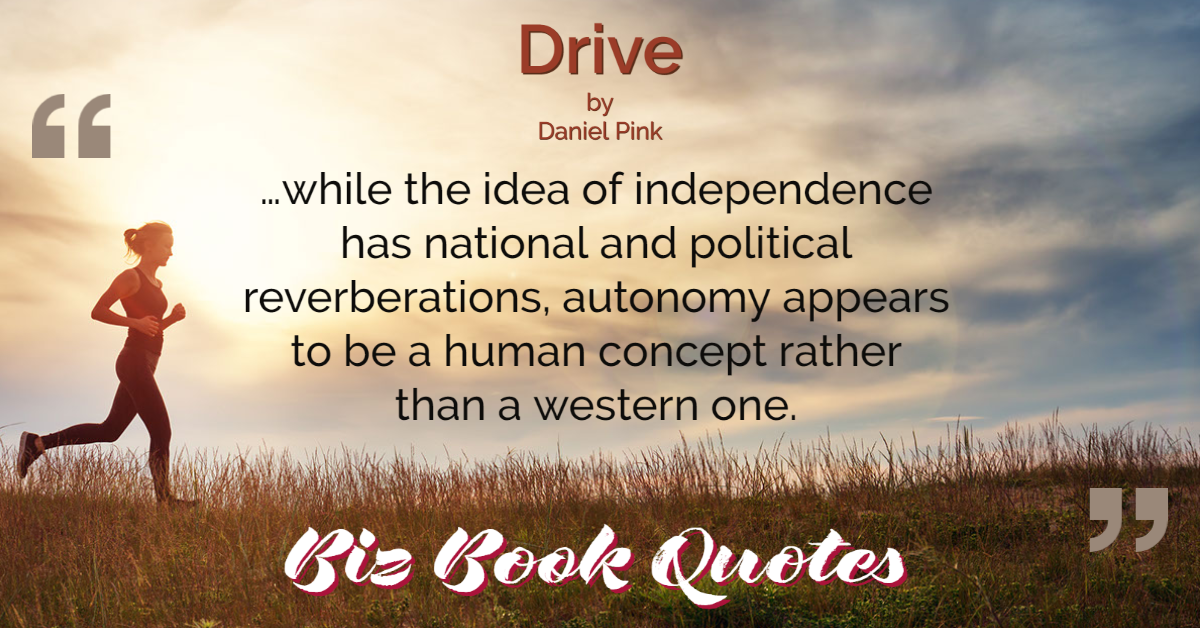 |
…while the idea of independence has national and political reverberations, autonomy appears to be a human concept rather than a western one.
|
90 |
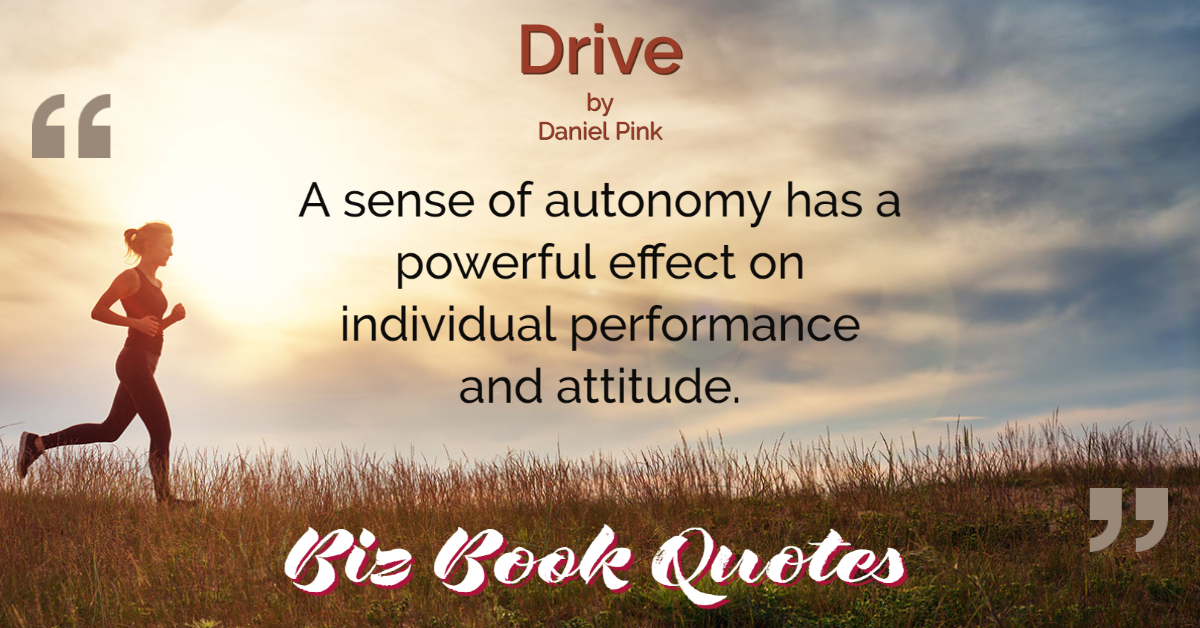 |
A sense of autonomy has a powerful effect on individual performance and attitude.
|
90 |
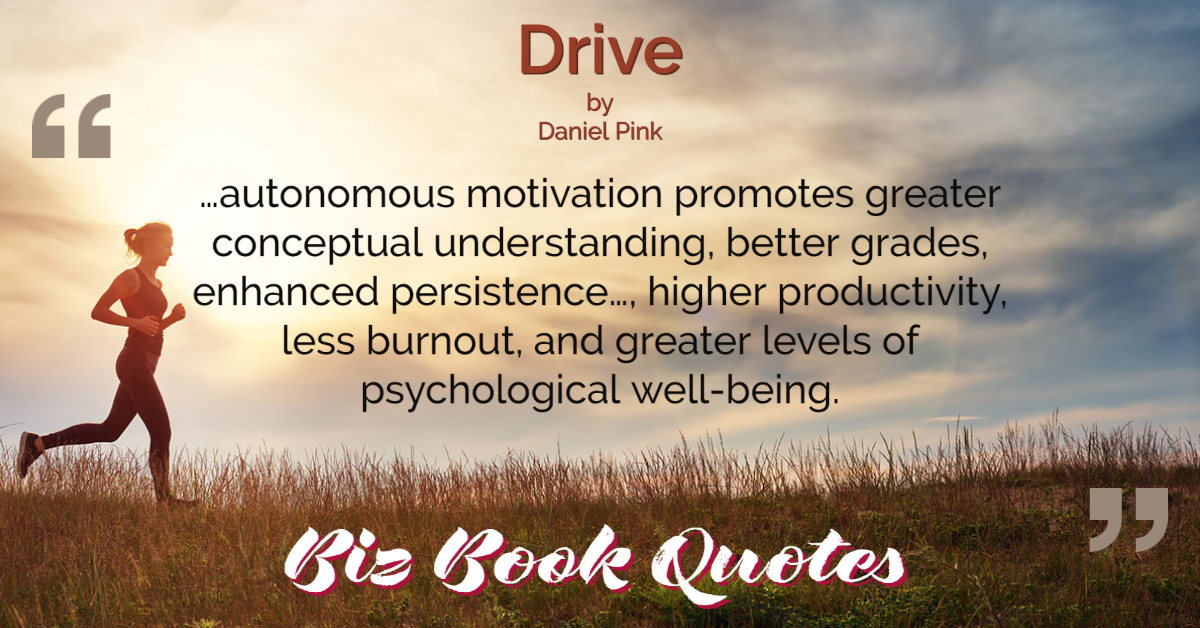 |
…autonomous motivation promotes greater conceptual understanding, better grades, enhanced persistence…, higher productivity, less burnout, and greater levels of psychological well-being.
|
91 |
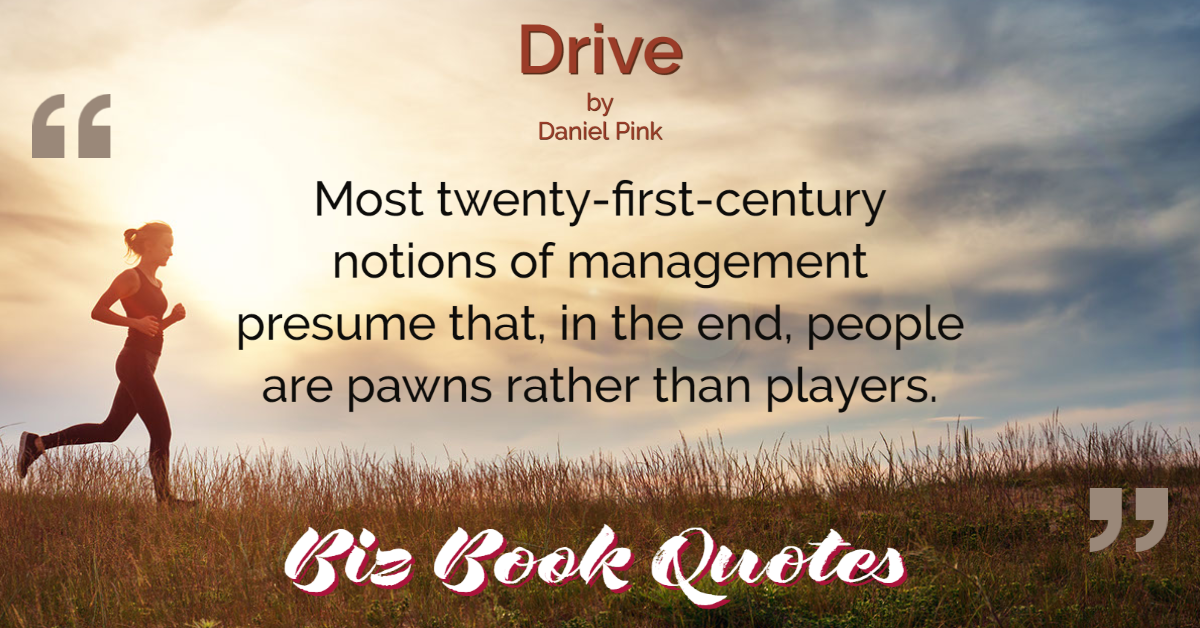 |
Most twenty-first-century notions of management presume that, in the end, people are pawns rather than players.
|
91 |
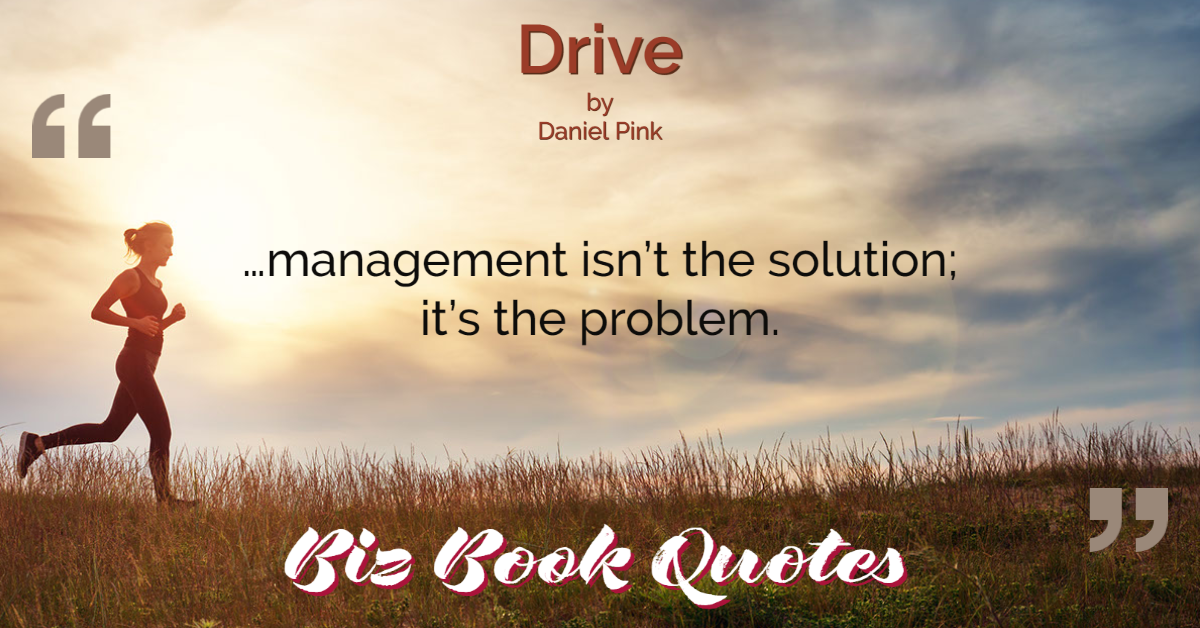 |
…management isn’t the solution; it’s the problem.
|
92 |
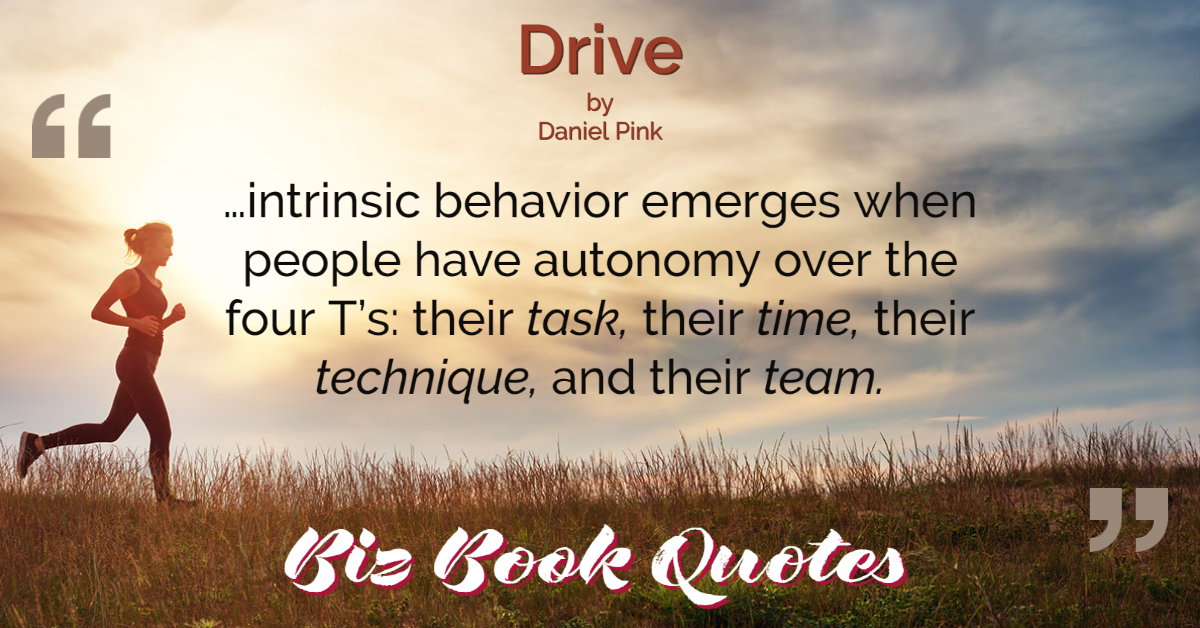 |
…intrinsic behavior emerges when people have autonomy over the four T’s: their task, their time, their technique, and their team.
|
94 |